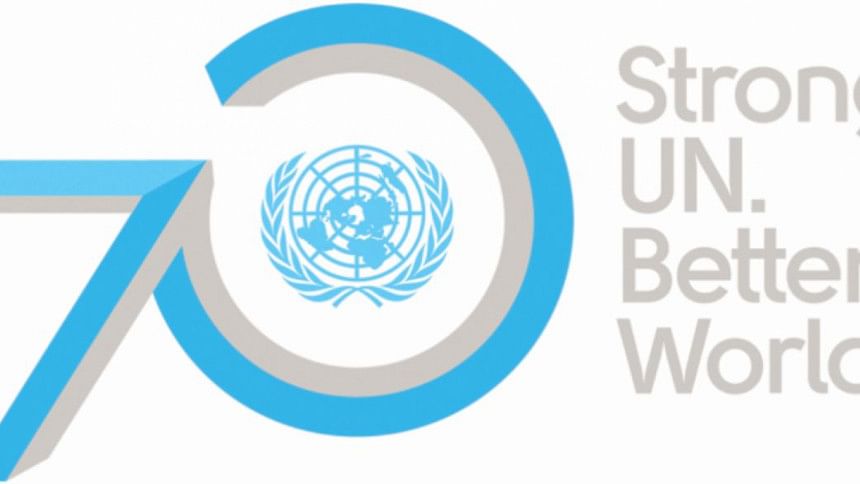Towards a safer and sustainable future for we the peoples

Long before I beca-me Secretary-General, the United Nations occupied a special place in my life. I was six years old when the Korean War broke out. I have memories of my village in flames as my family sought refuge in nearby mountains. But another sight is even more lasting: the UN flag. We were saved from hunger by UN food relief operations; we received textbooks from UNESCO; and when we wondered whether the outside world cared about our suffering, the troops of many nations sacrificed their lives to restore security and peace.
I know from my childhood, and now from decades of public service, the immense difference the United Nations can make. As we mark the anniversary of the adoption of the Organization's founding Charter on June 26, 1945 in San Francisco, my hope is that the human family will come together with greater determination to work for a safer and more sustainable future for "we, the peoples", in whose name the Charter was drafted.
The United Nations at 70 can look back on a proud record of working with many partners to dismantle colonialism, triumph over apartheid, keep the peace in troubled places and articulate a body of treaties and law to safeguard human rights. Every day, the United Nations feeds the hungry, shelters refugees and vaccinates children against polio and other deadly diseases. Our relief workers brave remote and dangerous environments to deliver humanitarian assistance, and our mediators strive to find common ground between warring parties and peaceful solutions to grievances and disputes. The United Nations was founded to prevent another world war, and it has succeeded in that corer mission; despite grave setbacks, the past seven decades would surely have been even bloodier without the United Nations.
Yet we are keenly aware that today's landscape is scarred by conflict, exploitation and despair. At least 59.5 million people have fled their homes – more refugees, displaced persons and asylum seekers than at any time since the end of the Second World War. Violence against women blights all societies. At a time of pressing human needs, huge amounts of money continue to be squandered on nuclear weapons and other destabilising military arsenals. The consequences of climate change are ever more apparent—and have only just begun. And although the world said "never again" after the Holocaust, and again after genocides in Rwanda and Srebrenica, we continue to witness atrocious crimes by violent extremists and others.
New powers have emerged since the representatives of 50 nations gathered to draft the Charter, and membership in the Organisation has grown to 193. Globalisation, urbanisation, migration, demographic shifts, technological advances and other seismic developments continue to remake our societies and transform international relations. Yet the Charter's vision of a world of peace, and the values enshrined in the text – dignity, equal rights, tolerance and freedom – remain touchstones for people everywhere.
The 70th anniversary falls in a year of potentially momentous decisions on our common future. Members are shaping what we hope will be an inspiring new sustainable development agenda and moving towards a meaningful agreement on climate change. Our goal is transformation: we are the first generation that can erase poverty from the earth – and the last that can act to avoid the worst impacts of a warming world.
As the distinctions between the national and the international continue to fall away, challenges faced by one become challenges faced by all, sometimes gradually but often suddenly. With our fates ever more entwined, our future must be one of ever deeper cooperation – nations united by a spirit of global citizenship that lives up to the promise of the Organisation's name.
The author is the Secretary-General of the United Nations.

 For all latest news, follow The Daily Star's Google News channel.
For all latest news, follow The Daily Star's Google News channel. 



Comments